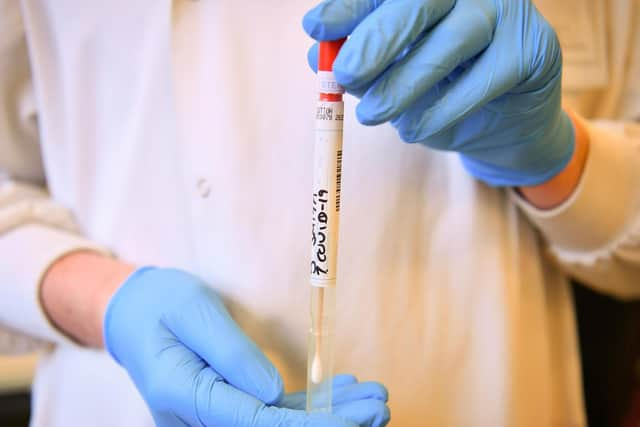Further 29 Covid deaths at Yorkshire hospitals as mutant Covid strain spreads across country
NHS England confirmed the deaths in figures released on Thursday, December 24.
It releases updated figures each day showing the dates of every coronavirus-related death at hospitals in England, often including previously uncounted deaths that took place several days or even weeks ago.
Deaths occurred at the following hospital trusts:


Barnsley Hospital NHS Foundation Trust - 5
Doncaster and Bassetlaw Hospitals NHS Foundation Trust - 7
Hull University Teaching Hospitals NHS Foundation Trust - 3
Mid Yorkshire Hospitals NHS Trust - 1
The Rotherham NHS Foundation Trust - 5
Sheffield Teaching Hospitals NHS Foundation Trust - 2
South Tees Hospitals NHS Foundation Trust - 4
York Teaching Hospital NHS Foundation Trust - 2
Advertisement
Hide AdAdvertisement
Hide AdThe current Covid death toll in Yorkshire hospitals is now 5,725.
The total across Leeds hospitals is 665 deaths.
Across England, a further 350 people who tested positive for coronavirus have died, bringing the total number of confirmed deaths reported in hospitals to 47,749, NHS England said on Thursday.
Patients were aged between 25 and 100. All except seven, aged between 30 and 97, had known underlying health conditions.
The deaths were between November 4 and December 23.
There were 29 other deaths reported with no positive Covid-19 test result.
Advertisement
Hide AdAdvertisement
Hide AdIt comes as the Office for National Statistics said around half of all new coronavirus cases in England could be the new variant discovered in the UK.
Concerns over the mutant strain, which scientists concluded was spreading more rapidly, mean millions of people in England will join those already under lockdown conditions from Boxing Day.
An estimated 645,800 people in private households in England had Covid-19 between December 12 and 18, according to the ONS – the equivalent of around 1.18% of the population, or one in 85 people.
In London, 68% of positive cases from December 14 to 18 were estimated to be genetically compatible with the new variant, while in eastern and south-east England the estimate is 65%.
Advertisement
Hide AdAdvertisement
Hide AdFor England as a whole, the statistics agency estimates that 49% of new cases could be the mutant strain that resulted in the creation of the new Tier 4 restrictions.
It said London now has the highest rate of people testing positive, with an estimated 2.1% of people in private households.
On Thursday, China’s foreign ministry said it would suspend flights to and from the UK, joining a list of nations who have imposed travel bans in light of the discovery of the variant.
Elsewhere, New York City mayor Bill de Blasio announced that authorities would personally visit all travellers from the UK to ensure they are isolating.
Advertisement
Hide AdAdvertisement
Hide AdIt comes after the UK implemented a travel ban on South Africa amid concerns over another new strain of Covid-19, which is feared to be more transmissible than that discovered in the UK.
Meanwhile, the latest NHS Test and Trace figures show that 34.1% of people tested at an “in-person” site in the week ending December 16 received their result within 24 hours.
This is down from 59.8% in the previous week, and is the lowest percentage since the week to October 28.
New data from NHS England shows that more than 70% of people in England who have been given a vaccine for coronavirus were aged over 80.
Advertisement
Hide AdAdvertisement
Hide AdPrime Minister Boris Johnson had already announced that more than 500,000 people had been given the first of two jabs, but figures show 521,594 were vaccinated between December 8 and December 20.
Some 366,715 of these were over 80, while the remaining 30% were care home residents under 80, care home staff and NHS workers.
These are the first figures published detailing the exact number of people to receive the Pfizer Covid-19 jab since Margaret Keenan became the first on December 8.
Priority groups in this initial phase – people aged 80 and over as well as care home residents and staff – were determined by the Government following advice from the Joint Committee on Vaccination and Immunisation.